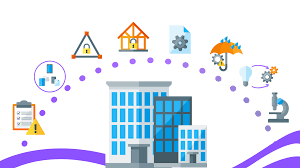Elon Musk’s Vision for AI: Balancing Innovation and Responsibility
Elon Musk and Artificial Intelligence: A Visionary’s Perspective
Elon Musk, the renowned entrepreneur and CEO of companies like Tesla and SpaceX, has been a vocal figure in the realm of artificial intelligence (AI). His views on AI are both influential and controversial, often sparking discussions about the future of technology.
Musk’s Concerns About AI
Elon Musk has frequently expressed concerns about the potential dangers of AI. He has warned that if not properly regulated, AI could pose existential threats to humanity. Musk believes that AI could surpass human intelligence and capabilities, leading to unforeseen consequences.
In various interviews and public appearances, Musk has advocated for proactive regulation to ensure that AI development is safe and beneficial for society. He argues that waiting until AI becomes more advanced could be too late to mitigate its risks.
Initiatives in AI Development
Despite his cautionary stance, Elon Musk is actively involved in advancing AI technology through several initiatives:
- OpenAI: In 2015, Musk co-founded OpenAI with the goal of promoting and developing friendly AI for the benefit of humanity. OpenAI aims to ensure that artificial general intelligence (AGI) is aligned with human values.
- Tesla’s Autopilot: Tesla’s self-driving technology leverages advanced machine learning algorithms to enhance vehicle safety and autonomy. While some critics argue about its readiness, Musk remains optimistic about its potential.
- Neuralink: Another venture by Musk, Neuralink focuses on developing brain-machine interfaces. The company aims to merge human cognition with AI capabilities, potentially revolutionizing how humans interact with machines.
The Duality of Progress
Musk’s involvement in both advocating for cautious AI development and actively pushing technological boundaries highlights a duality in his approach. He acknowledges the transformative power of AI but insists on responsible innovation.
This dual perspective encourages ongoing dialogue among technologists, ethicists, policymakers, and the public about how best to harness AI’s potential while minimizing its risks.
A Future with Responsible AI
The conversation around Elon Musk’s views on artificial intelligence underscores the importance of balancing innovation with caution. As technology continues to evolve at an unprecedented pace, it is crucial for stakeholders across various sectors to collaborate in shaping a future where AI serves as a tool for positive change.
Musk’s contributions serve as a reminder that while progress is inevitable, it must be guided by ethical considerations to ensure a safe and prosperous future for all.
Elon Musk: Championing Responsible AI Development and Innovation
- Elon Musk’s advocacy for responsible AI development raises awareness about the potential risks associated with unchecked artificial intelligence.
- Musk’s initiatives, such as OpenAI and Neuralink, contribute to advancing AI technology in a direction that aligns with human values and safety.
- Through Tesla’s Autopilot feature, Musk demonstrates how AI can enhance vehicle safety and pave the way for autonomous driving innovations.
- Musk’s public discussions on AI encourage critical thinking and dialogue among experts, policymakers, and the general public about ethical AI use.
- Elon Musk’s involvement in various AI projects showcases his commitment to pushing technological boundaries while prioritizing societal well-being.
- By highlighting both the promises and perils of AI, Elon Musk prompts a nuanced understanding of how artificial intelligence can shape our future.
Examining the Potential Downsides of Elon Musk’s Stance on AI: Fear, Regulation, and Conflict of Interest
- Elon Musk’s alarmist warnings about AI may contribute to unnecessary fear and skepticism around the technology, potentially hindering its progress.
- Musk’s strong opinions on AI regulation could lead to delays in innovation as companies navigate complex regulatory landscapes, slowing down advancements in the field.
- Critics argue that Musk’s simultaneous involvement in AI development and advocacy for caution creates a conflict of interest, raising questions about his true motivations and intentions.
Elon Musk’s advocacy for responsible AI development raises awareness about the potential risks associated with unchecked artificial intelligence.
Elon Musk’s advocacy for responsible AI development plays a crucial role in raising awareness about the potential risks associated with unchecked artificial intelligence. By consistently highlighting the need for careful regulation and ethical considerations, Musk brings attention to the possible dangers that AI advancements might pose if left unmonitored. His efforts encourage both policymakers and the tech industry to prioritize safety measures and transparency in AI research and implementation. This proactive stance not only fosters a more informed public dialogue but also pushes for innovations that align with societal values, ultimately aiming to ensure that AI technologies benefit humanity as a whole.
Musk’s initiatives, such as OpenAI and Neuralink, contribute to advancing AI technology in a direction that aligns with human values and safety.
Elon Musk’s initiatives, including OpenAI and Neuralink, play a significant role in steering AI technology towards aligning with human values and safety. OpenAI focuses on developing artificial general intelligence that is beneficial to humanity, ensuring that advancements in AI are made transparently and responsibly. By prioritizing ethical considerations, OpenAI aims to mitigate potential risks associated with AI technologies. Similarly, Neuralink explores the integration of AI with human cognition through brain-machine interfaces, emphasizing enhancements that improve human capabilities without compromising safety. Together, these initiatives underscore Musk’s commitment to fostering innovation in a manner that prioritizes the well-being of society and encourages responsible development practices.
Through Tesla’s Autopilot feature, Musk demonstrates how AI can enhance vehicle safety and pave the way for autonomous driving innovations.
Elon Musk’s Tesla Autopilot feature exemplifies how AI can significantly enhance vehicle safety and drive the future of autonomous transportation. By integrating advanced machine learning algorithms, Autopilot enables Tesla vehicles to navigate roads with increased precision and awareness, reducing the likelihood of accidents caused by human error. This technological innovation not only provides drivers with a safer driving experience but also lays the groundwork for fully autonomous vehicles. Musk’s commitment to refining this AI-driven system underscores his vision of a future where transportation is both efficient and secure, showcasing AI’s potential to transform everyday life.
Musk’s public discussions on AI encourage critical thinking and dialogue among experts, policymakers, and the general public about ethical AI use.
Elon Musk’s public discussions on AI play a crucial role in fostering critical thinking and dialogue among experts, policymakers, and the general public regarding the ethical use of artificial intelligence. By openly expressing his concerns and insights about the potential risks and benefits of AI, Musk prompts stakeholders from various fields to engage in meaningful conversations about how to navigate its development responsibly. His outspoken stance encourages a broader awareness of the ethical implications surrounding AI technologies, motivating collaborative efforts to establish guidelines and regulations that ensure AI advancements benefit humanity as a whole. Through these discussions, Musk helps drive a proactive approach to addressing the challenges posed by AI, emphasizing the importance of foresight and preparation in shaping a future where technology serves as a force for good.
Elon Musk’s involvement in various AI projects showcases his commitment to pushing technological boundaries while prioritizing societal well-being.
Elon Musk’s involvement in various AI projects highlights his dedication to advancing technology in ways that benefit society as a whole. By spearheading initiatives like OpenAI, which focuses on developing safe and ethical artificial intelligence, and Neuralink, which aims to create brain-machine interfaces to enhance human capabilities, Musk demonstrates a commitment to innovation that is both groundbreaking and responsible. His approach ensures that while technological boundaries are pushed, the potential risks associated with AI are carefully managed, prioritizing societal well-being alongside progress. This balanced perspective encourages the development of AI technologies that can transform industries and improve lives without compromising ethical standards or safety.
By highlighting both the promises and perils of AI, Elon Musk prompts a nuanced understanding of how artificial intelligence can shape our future.
Elon Musk’s approach to artificial intelligence, which emphasizes both its promises and potential perils, encourages a more nuanced understanding of how AI can shape our future. By acknowledging the transformative power of AI in fields such as healthcare, transportation, and space exploration, Musk highlights the immense benefits that this technology can bring to society. At the same time, his warnings about the risks of unchecked AI development serve as a crucial reminder of the ethical and safety considerations that must accompany technological advancement. This dual perspective fosters a balanced dialogue among innovators, policymakers, and the public, ultimately guiding responsible AI development that maximizes benefits while minimizing risks.
Elon Musk’s alarmist warnings about AI may contribute to unnecessary fear and skepticism around the technology, potentially hindering its progress.
Elon Musk’s alarmist warnings about artificial intelligence, while intended to caution against potential risks, may inadvertently contribute to unnecessary fear and skepticism surrounding the technology. His high-profile statements about AI posing existential threats could lead the public and policymakers to adopt overly cautious or restrictive approaches, potentially stifling innovation and slowing down beneficial advancements. This heightened apprehension might deter investment and research in AI, limiting its potential to address critical challenges in fields such as healthcare, transportation, and environmental sustainability. By focusing predominantly on worst-case scenarios, Musk’s perspective could overshadow the positive impacts AI can have when developed responsibly.
Musk’s strong opinions on AI regulation could lead to delays in innovation as companies navigate complex regulatory landscapes, slowing down advancements in the field.
Elon Musk’s strong advocacy for stringent AI regulation, while aimed at ensuring safety and ethical development, could inadvertently slow down innovation in the field. As companies strive to comply with complex regulatory landscapes, they may face increased bureaucratic hurdles and extended timelines for research and development. This cautious approach, though well-intentioned, might deter startups and established firms alike from pursuing bold AI advancements due to the fear of non-compliance or potential legal repercussions. Consequently, the pace of technological progress could be hampered, delaying the introduction of groundbreaking AI solutions that could benefit society. Balancing regulation with innovation is crucial to avoid stifling creativity and maintaining a competitive edge in the global AI arena.
Critics argue that Musk’s simultaneous involvement in AI development and advocacy for caution creates a conflict of interest, raising questions about his true motivations and intentions.
Critics of Elon Musk point out that his dual role as both a developer of AI technologies and an advocate for caution in AI advancement creates a potential conflict of interest. This duality raises questions about his true motivations and intentions, as some argue that his warnings about AI risks could serve to position his ventures, such as Tesla and Neuralink, favorably within a regulated landscape. By highlighting the dangers of AI while simultaneously investing heavily in its development, skeptics suggest that Musk may be attempting to influence public perception and policy in ways that benefit his business interests. This perceived conflict prompts ongoing debate about whether his cautionary stance is genuinely rooted in concern for humanity or strategically aligned with corporate goals.








